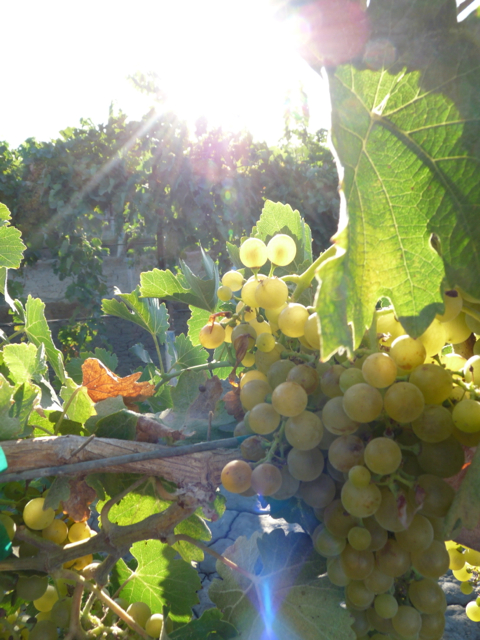Drought-Focused Soil Nutrient Management Forum Offered for Winegrape Growers
Winegrape growers are invited to participate in an online forum to discuss vineyard nutrient management in limited water conditions. The free nutrient management forum, which will run Jan. 12 through Jan. 23, is hosted by the University of California Sustainable Agriculture Research & Education Program (UC SAREP), FarmsReach and Sustainable Conservation.
Farmers and UC Cooperative Extension advisors from different regions will answer questions and share resources throughout the discussion. Participants can post a question in the forum and receive an e-mail when there is a reply.
To participate in the forum, sign up for free at http://ucanr.edu/onlineforum.
“Nutrient management for grapes can be very complicated, and growers have to continually adapt to changing conditions such as this year’s drought,” said Maxwell Norton, UC Cooperative Extension advisor. “It’s good to spend some time exploring how grape growers can succeed in challenging circumstances, and learn from each other about the many ways nutrient management can affect your farm in the coming season.”
Kicking off on Jan. 12, the Nutrient Management Solutions online discussion forum will offer the agriculture community:
- Online videos and Q&A with farmers and advisors on nutrient management and soil fertility issues, with a special focus on winegrapes.
- Online discussions via the FarmsReach website, moderated by series presenters.
- A new “Soil Nutrient Management Toolkit” on the FarmsReach site, with selected practical resources and fact sheets for farmers of all crop and product types.
This online series is part of the Solution Center for Nutrient Management—a growing resource for nutrient management research and information, created by UC SAREP. For more information, contact Aubrey White, UC SAREP communication coordinator, at abwhite@ucdavis.edu or (530) 752-5299.
About UC SAREP
The University of California Sustainable Agriculture Research & Education Program (UC SAREP), a program in the UC Division of Agriculture and Natural Resources, provides leadership and support for scientific research and education in agricultural and food systems that are economically viable, conserve natural resources and biodiversity, and enhance the quality of life in the state’s communities. SAREP serves farmers, farmworkers, ranchers, researchers, educators, regulators, policymakers, industry professionals, consumers and community organizations across the state.
About FarmsReach
Founded in 2007, FarmsReach is a network that connects small- and medium-scale farms to the products, support and services they need to be successful. By partnering with farmer members and agriculture organizations, FarmsReach offers a growing suite of services that empower farmers to make better business decisions, access new markets, preserve the environment and strengthen rural communities.
About Sustainable Conservation
Sustainable Conservation helps California thrive by uniting people to solve the toughest challenges facing our land, air and water. Since 1993, Sustainable Conservation has brought together business, landowners and government to steward the resources that we all depend on in ways that make economic sense. Sustainable Conservation believes common ground is California’s most important resource. www.suscon.org
For more than 100 years, the University of California Cooperative Extension researchers and educators have been drawing on local expertise to conduct agricultural, environmental, economic, youth development and nutrition research that helps California thrive. UC Cooperative Extension is part of the University of California’s systemwide Division of Agriculture and Natural Resources. Learn more at ucanr.edu.










